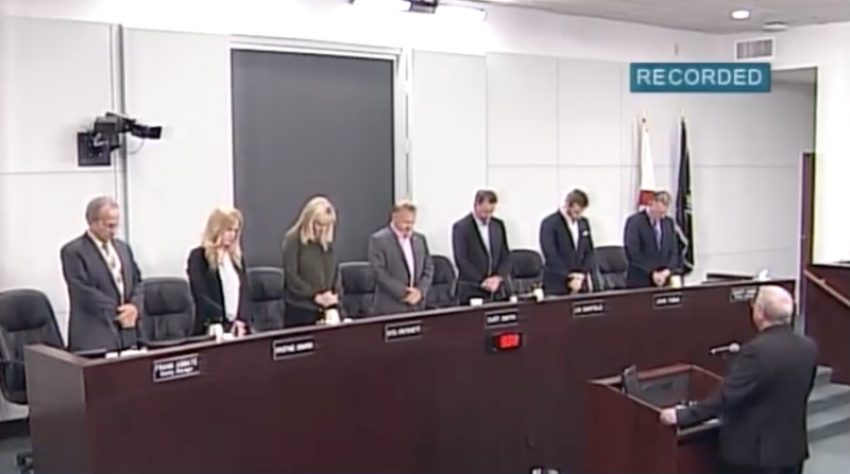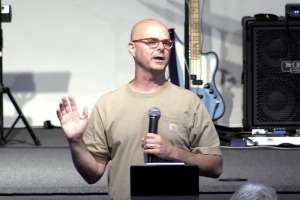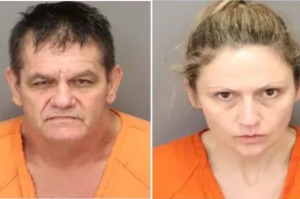Federal appeals court rules against Florida county prayer policy that bars atheist invocations

A three-judge panel of the U.S. Court of Appeals for the Eleventh Circuit unanimously ruled against a Florida county’s prayer policy that bans atheists and other religious groups from giving invocations.
In a decision released Monday in the case of Williamson v. Brevard County, the panel ruled against the invocation policy of the Brevard County Board of Commissioners. Circuit Judge Stanley Marcus wrote the opinion, arguing that while Brevard County was allowed to have sectarian invocations, they could not exclude certain groups from giving them.
“Brevard County has selected invocation speakers in a way that favors certain monotheistic religions and categorically excludes from consideration other religions solely based on their belief systems. Brevard County’s process of selecting invocation speakers thus runs afoul of the Establishment Clause,” wrote Judge Marcus.
“Secular humanists are far from the only group viewed with disfavor … some of the Commissioners and former Commissioners have testified unambiguously that they would not allow deists, Wiccans, Rastafarians, or, for that matter, polytheists to deliver prayers, and that they would have to think long and hard before inviting a Hindu, a Sikh, or a follower of a Native American religion.”
Marcus labeled Brevard County’s policy “unconstitutional,” but also noted that the court would not pursue the specific question of whether “secular humanists must be allowed to deliver non-theistic invocations.”
“We need go no further today than to say this: in selecting invocation speakers, the Commissioners may not categorically exclude from consideration speakers from a religion simply because they do not like the nature of its beliefs,” he wrote.
Alex J. Luchenitser of Americans United for Separation of Church and State, who served as lead counsel in the case, stated that the ruling “made clear that no one should be excluded from civic affairs because of their beliefs about God.”
“Religious minorities and nonbelievers are equal members of society and they must be treated equally by their elected officials,” said Luchenitser in a statement released Monday.
Brevard County Communications Director Don Walker explained to Florida Today that the county was debating whether to continue the litigation.
In 2014, David Williamson of the Central Florida Freethought Community and other atheist leaders asked to do an invocation at the opening of the Brevard County Commissioners meeting.
In response to their request, Brevard Commissioners unanimously approved a measure that year banning atheist invocations from opening their public meetings.
Brevard County Chair Mary Bolin Lewis said in a letter sent to Williamson that he was allowed to offer an atheist invocation during the public comments section of the meeting.
"The prayer is delivered during the ceremonial portion of the county's meeting, and typically invokes guidance for the County Commission from the highest spiritual authority, a higher authority which a substantial body of Brevard constituents believe to exist," wrote Lewis.
"The invocation is also meant to lend gravity to the occasion, to reflect values long part of the county's heritage, and to acknowledge the place religion holds in the lives of many private citizens in Brevard County."
Williamson and other plaintiffs filed a lawsuit against the county in 2015, being represented by Americans United, the Freedom From Religion Foundation, and the American Civil Liberties Union.
In late September 2017, the U.S. District Court for the Middle District of Florida ruled against the county, arguing that their invocation policy was unlawful.
"For a governmental entity to require, or attempt to require, 'religious' content in invocations is, in effect (or, at best, but a step removed from) that entity composing prayers for public consumption or censoring the content of prayer," ruled the court.
"Here, the County is attempting to require that God be mentioned in invocations by limiting the sphere of invocation givers to those who believe- or who the County thinks believe- in one God. This practice cannot be squared with controlling precedent, and the County's invocation practice cannot be defended based on a 'religiosity' requirement."



























